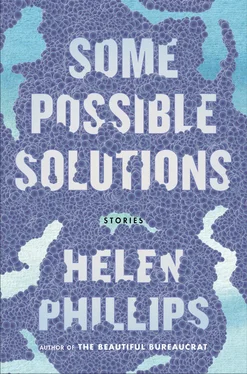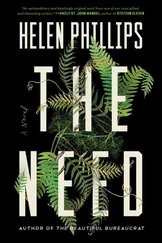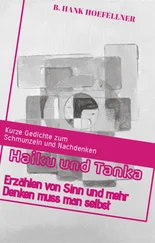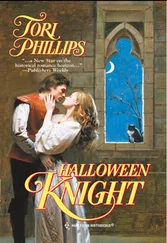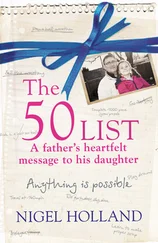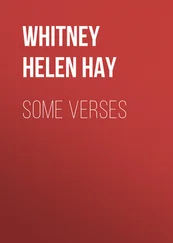* * *
When I rangMrs. Penelope’s doorbell, she refused to let me enter and instead called the fat policeman, as I’d known she would. I didn’t protest when he arrived and handcuffed me to myself. Once again we traveled the endless windless city blocks. This time I refused to talk. I refused his peanut M&Ms. “Are you a fucking deaf-mute?” he said.
* * *
At sundown, apregnant woman stood in the barnyard. She wore a white apron and from it she grabbed seed to toss to the chickens clustering around her. In the hut behind her a candle gleamed in a foggy window. This woman was composed of many kinds of roundness: her cheeks, her shoulders, her tits, her belly, her bum. She looked soft to the touch, lovely. The mother everyone yearns for. In the window where the candle glowed a thin man was stirring something in an enormous black pot. I stumbled out of the police car, still handcuffed to myself.
“Why didn’t you tell me!” I shrieked.
She looked up and smiled, her eyes drugged with tranquillity. She tried to hurry to me but her body was slow.
“Dearest,” she said. Her voice was low and warm, in an unfamiliar register. She had never before called me “Dearest.”
“Why didn’t you tell me,” I squeaked again.
She gestured with her head to the policeman, who strolled over and unlocked the handcuffs and got back in the police car and went back to the city. Then she held me.
“Where did you go?” I moaned into her soft shoulder. “Why did you leave me?”
“Dearest,” she said in that odd adult voice. “All those nights we stayed up, playing cards and banjo and everything. You know how Alex and I talked.”
“Alex? Who’s Alex?” I said.
“How we made plans. The three of us right there at the table.”
I remembered myself drifting, not listening, carried upward and away by the warmth of food and fire.
“We knew the baby was coming. We were so eager to get married. We were so grateful to you. How calmly you took it. How generous you were with us, with me. With your love. We were horrified when we got back and you weren’t here. We asked the policeman to track you down. And here you are, back at home, dearest, Aunt Rose—”
I stiffened, pulled myself away from her soft, soft body.
“We aren’t twins,” I said. “We aren’t even fucking sisters. We’re not related.”
In the abandoned bunkhouse the callous wind blew between the cracks. I shared the building with thirty-nine invisible farmhands. In the morning my brain was cold and clear, calm with hatred.
* * *
Every time shesaid “Alex” I couldn’t help thinking, “Who’s Alex?” She brought me porridge in a wooden bowl, carrying it with both hands like something precious, the bowl an extension of her roundness. Sitting beside the fire, she massaged my hands, as though I was the one about to undergo intolerable physical pain. The warmth of her fingers on mine soothed me into a rare benevolent mood, and I told her she had healing hands; she exchanged a private look with the thin man and I curled my fingers and pulled them away. She asked if I wished to name the baby and I told her I did not. When she questioned me about my time in the city, I overemphasized the loveliness and wildness of the people I’d known in the park, and my tenderness toward them; I enjoyed searching her face for hints of envy. When the baby was ugly and newborn, I heard her fighting with the thin man in the hut. After suppressing my instinct to barge through the door, I couldn’t suppress a grin. Once, when she was so exhausted from the baby she went to bed before sundown, I came into the hut and sat beside the fire with the thin man. I wasn’t wearing a bra. He played the banjo softly. Slowly I unbuttoned my shirt. My breasts, small and flawless, no crust of dried milk, no distended nipples. He looked up from the banjo and saw what I was showing him. He shut his eyes, but not before I could see disgust and fascination mingling in them; not before the bedroom door cracked open a sliver and then slammed shut. He and I twisted our necks, looking over at the door. I buttoned my shirt and left the hut and went to the windy bunkhouse.
Late at night, more screaming from the hut. A baby screaming, joined by a woman screaming and a man too. In the morning, they were all three exhausted and united. Soon the first snowflake would fall. They came out into the barnyard, the small family, and stood there together huddling under the great heavy sky. A gray wool blanket wrapped around them. They looked at me. Not with hatred but with something else. How humble they were, she and her husband and her child, peasants on the first day of snow. Now she and I looked nothing alike.
* * *
Everything I ownedcould be folded into a single bandanna and so it was. I strode through the barnyard, past the peasants cowering beneath the wool blanket, though I had no idea where I was headed. I set out across the strawberry field, so glaringly empty of snakes, if only she and I were still there, picking strawberries and stroking snakes. I walked for over an hour, my tear ducts out of control and my fingers freezing. Then, miraculously, moments after the snow thickened, I came upon a hut in a grove. It was unlocked, vacant, provisioned with canned foods, dried meat, raisins, oatmeal. There was an indoor pump for water and an outhouse back behind. There was a shovel and an ax and a gun. My loneliness made me brave and mean. This was my place now. I had no qualms about killing its rightful owner. There was a full bookshelf and a bed with a gray blanket. Blue flannel pajamas and a large bag of coffee beans. To my surprise — to my disappointment — no one came to kick me out. All winter I read. I read and I practiced saying “I” rather than “we.” Sometimes, in a moment of strength, fortified by beef jerky and canned peaches, I wondered if I might come to love her again. Other times I would lie there whimpering. All the while, the wind blew. I did not look forward to spring.
* * *
In spring, whenthe thaw came, I stepped outside and noticed above the door of the hut a wooden sign: R’S HIDEAWAY. It was obvious that the blanket I’d slept under all winter matched their gray peasant blanket exactly. Enraged, exhausted, I leaned against the dripping hut: I’d never been alone, never been free.
* * *
In the strawberryfield the plants were coming up bright green. Slim snakes practiced gliding on the cool dirt. I set out across it, preparing for a confrontation.
* * *
Please tell mewhere else I might have gone, what else I might have done.
* * *
She stood inthe doorway, her face less full of love than it used to be. But still full of love. What she said was, “We need to plant the peas today,” and what I said was, “Okay.”
* * *
Sometimes her daughtercan’t tell us apart. She comes rushing up the row behind me yelling, “Momma! Momma!” Sometimes she keeps calling me “Momma” even after I twist fiercely around and she sees my eyes, my ferocious mouth, my hair blowing across my face.
How can I talk about them. The form they chose to take. The pinafore, the suspenders. The broad white collars and the big black buttons.
“ You’re the one who dresses them that way,” Thomas would say irritably. “Those are the clothes you made. And you are their human mother . So enough, okay.”
Thomas doesn’t believe, and I don’t blame him. It isn’t easy to believe that when I was sewing those clothes there was something else guiding my fingers, something outside of me, something green and glowing.
Читать дальше
